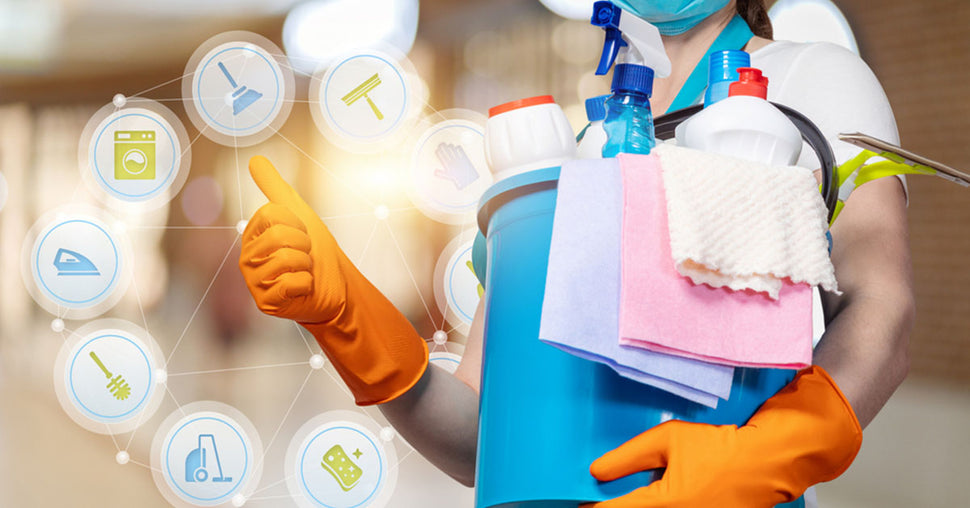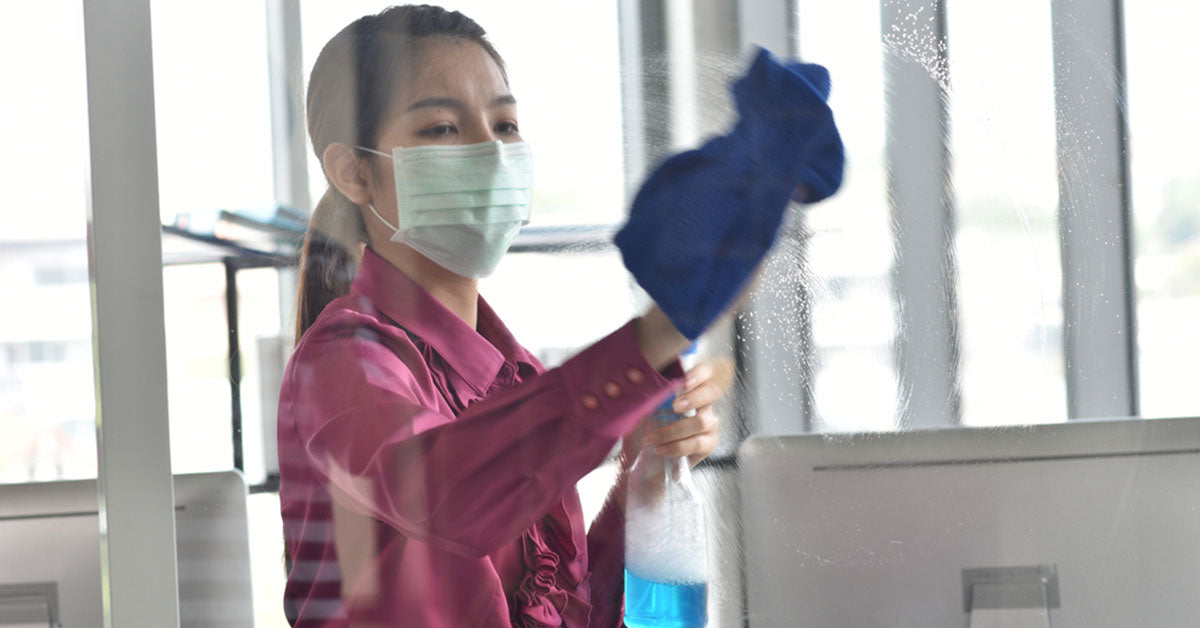Safety Mantras For Domestic Help Returning To Work
22 Aug 2020
According to official estimates, India has approximately 4 million domestic workers. However, independent research shows that this figure is at a minimum of 50 million. These workers are often referred to as the “help” which puts them in the large informal sector where they have no legal recourse for safety and welfare issues. With lockdown measures being eased, families and offices are eager to have their domestic workers return. However, they usually use local transport, live in small quarters and work in a number of locations. These 7 safety tips may help to reduce the risk of transmission and ensure that both employers and domestic workers remain safe during the pandemic after they return to work.
Safety Precautions For Domestic Workers To Help Reduce The Transmission Risks Of COVID-19
Provide Them With Masks And Gloves
Face masks and gloves are essential for all domestic workers. The N95 mask offers the best protection but these masks are only required for healthcare workers as they work in high-risk environments. These masks are designed to be worn for about 8 hours, so their effectiveness will be greatly diminished if they are used regularly for days, weeks or even months on end. According to the most recent World Health Organisation guidelines (1), reusable fabric masks are recommended in public settings, workplaces and when using public transport. Fabric masks should consist of 3 layers – an outer layer of polyester material, a middle layer of a non-woven material such as polypropylene and an inner layer of cotton material. You should provide your domestic worker with such fabric masks and a pair of thick rubber gloves that can be washed and reused daily. This simple safety precautions for housekeepers can go a long way.
Clean Masks And Gloves Regularly
Ideally, you should set aside at least 2 sets of reusable masks and gloves for your domestic worker. Keep the mask and gloves outside your door so that she can put them on before he/she enters and take them off as they leave. It is also advisable to wash reusable masks and gloves with soap water on a daily basis and dry them in the sun.

Everyone In The Premises Should Wear A Mask
Masks serve two purposes – they reduce the number of viral particles expelled by an infected individual and they prevent those air-borne viral particles from entering the respiratory systems of those they come in contact with. This is why it is best if everyone wears masks, especially in offices and public settings.
Create Specific Work Areas And Maintain A Distance
Research (2) shows that the risk of infection is halved with every extra meter of distance up to 3 meters. Create specific work areas for your domestic worker so that you are able to maintain a distance of 3 meters or more. Ensure that you are complying with the social distancing protocol at a domestic level too.
Keep The Area Well Ventilated
According to researchers (3), improving ventilation is vital to limiting the airborne transmission of the virus. Without adequate ventilation, an infected individual can create a “hotspot” of virus-laden air. Furthermore, air conditioners, especially central air conditioning systems, can spread the virus throughout an office which poses a significant health risk if the employees are not wearing their masks. Whenever possible, keep windows open and use large fans to keep the premises well-ventilated. This will make your home a safe workplace for your domestic workers.

Promote Hand Hygiene
Hand hygiene is a critical measure to prevent getting infected with COVID-19. Provide alcohol-based hand sanitizers in your office and encourage all employees to use it frequently. Make sure that the sanitizer contains no less than 60% alcohol. At home, encourage everyone in your family to wash their hands every time they enter the house. According to the WHO guidelines for hand hygiene (4), plain soap is effective in destroying the COVID virus as it dissolves the oil surface membrane that protects the virus. This is not only a safety measure for domestic workers, but for everybody in the house.
Encourage Self-reporting Of Any Symptoms
Indian law protects employees’ rights, which is why employees can avail of paid sick leave when they are unwell. However, domestic workers are not covered by the same laws, which is why they are not eligible for sick leave. Many domestic workers do not self-report their symptoms because they are afraid of what the loss of pay will mean for themselves and their families. Offer your domestic worker paid leave in case of illness so that they are more inclined to self-report symptoms at the earliest which will reduce the risk of transmission.
Safety precautions are only effective as long as they are followed, so make sure that everyone in your family and office follows the rules. While some people think that domestic workers pose a greater risk, it is time that we stopped viewing them as “carriers” and realize that this is a joint struggle against the virus.
Skin: Renew - Glutathione - Orange Flavour
- ₹1,994
- ₹1,994
-
₹2,600 - ( 23% OFF)
Categories
- Choosing a selection results in a full page refresh.
- Press the space key then arrow keys to make a selection.
this is the sidecart











